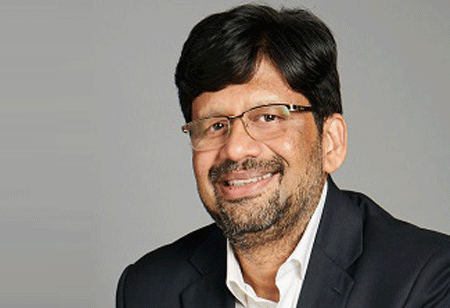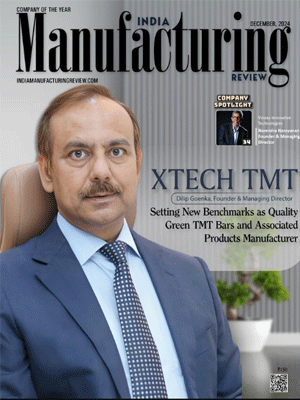
Safeguarding Smart Homes In An Integrated World
In an interaction with Pushkar Gokhale, Business Head, Godrej Security Solutions, shares his views on how smart home integration challenges impact the effectiveness of security monitoring systems, the measures that can be taken to address these issues, the increasing prevalence of AI in smart home systems, the security concerns that arise in terms of monitoring, and how can these technologies be leveraged to strengthen the security of smart homes and more.
How do smart home integration challenges impact the effectiveness of security monitoring systems, and what measures can be taken to address these issues?
When it comes to connected homes, one of the factors we should be aware of is the fact that the complications are very high since a smart home is an interplay of connected devices, and it comprises a wide range of components. Therefore, it is not just about a particular product. It is about smart devices having built-in sensors, controllers, automation software, and hardware. Hence, there are too many points where there is an interplay between the elements. Hence, the first challenge is to address the complicated nature of this entire integration.
For such kinds of complications, we need to have the integrators. If I am a customer and I want to go for a connected home, I should contact a system integrator, who will do the entire integration of the components. Also, the system integrator has to be capable and the capability has to be two dimensional. The first part is about understanding the customer and his requirements as many times the customer wants the security elements to be more discrete than the other elements, and security is something which the customers would still want to have complete control of.
Therefore, the system integrator must possess this comprehension while investigating, as they need to carefully examine the precise customer requirements and mindset. That constitutes one aspect of it; the second ability lies in the aspect of implementation regarding the project. He must comprehend and have a profound knowledge of all these components as it is essential for achieving flawless integration. Therefore, the aforementioned challenges are present, with the final challenge revolving around the lack of customer loyalty to a specific brand.
So, if we discuss the interaction between devices, the customer may prefer purchasing various products from multiple brands. Therefore, when installing or executing this task, one may encounter a difficulty known as interoperability. Interoperability refers to the requirement for devices to communicate and work together smoothly. This implies that if the devices are from different brands, they must be compatible with each other. If they are not, the entire system will be compromised.
With the increasing prevalence of AI and machine learning in smart home systems, what security concerns arise in terms of monitoring, and how can these technologies be leveraged to strengthen rather than compromise the security of smart homes?
The role of Artificial Intelligence will be crucial in the smart homes industry. For instance, today customers look for air conditioners that adapt to the environment. If the temperature increases, they would want the air conditioners to automatically adjust to the new temperature. Hence, in the event that the temperature increases, the air conditioner will automatically modify its temperature to maintain a consistent temperature indoor. Therefore, there is no need to configure the temperature using a remote control. This is the type of intelligence that is being developed, today.
"When it comes to safeguarding the data, it is imperative to be mindful and exhibit a high level of control to ensure that the data is utilized for lawful intents"
The second factor is related to the protection of the data. India has already initiated the process of safeguarding personal digital information, and the proposed legislation has already been approved. We have witnessed the current developments in Europe, where the GDPR, the General Data Protection Regulation, has already been implemented. Hence, the responsibility lies with the OEMs now. It is crucial to adhere to strict rules and ensure that data processing is carried out for appropriate reasons. The purpose for which the data is collected must be explicitly stated, and it is the responsibility of the OEMs, hub suppliers, and integrators to ensure compliance with these guidelines when setting up the system.
In the face of potential privacy breaches associated with security monitoring in smart homes, what ethical considerations need to be addressed, and how can security systems be designed to prioritize user privacy without compromising the effectiveness of monitoring?
When it comes to safeguarding the data, it is imperative to be mindful and exhibit a high level of control to ensure that the data is utilized for lawful intents. The customer’s desire for comfort leads to the implementation of smart technologies in smart homes. This involves the collection of several data points, from numerous devices. In addition, it offers valuable information such as preferred temperatures, TV channels, food orders etc.
Therefore, huge amounts of data are being gathered, and as several people enter this field of connected devices, an enormous volume of data will be constantly streaming in. Hence, the responsibility lies within the service providers who will store this data on their servers. It is their responsibility to ensure security, confidentiality and privacy of the data. If they fail to handle it, customers will be hesitant to use these smart devices.
Legal actions can be taken against organizations that fail to adhere to the rules of data privacy. Hence, in my opinion, it is certain that it will continue to become restrictive. Also, I am confident that this will benefit Indian consumers who will embrace the concept of smart homes or connected homes eagerly.



